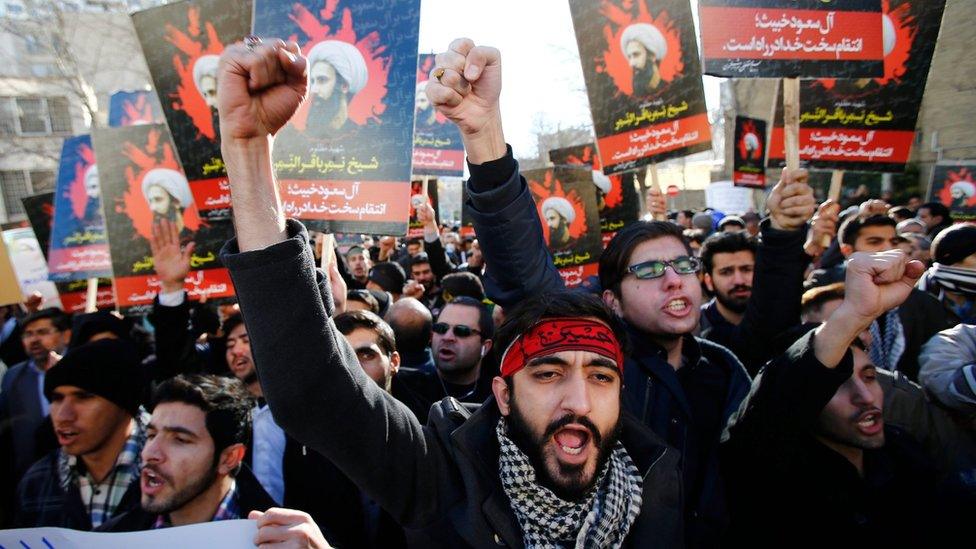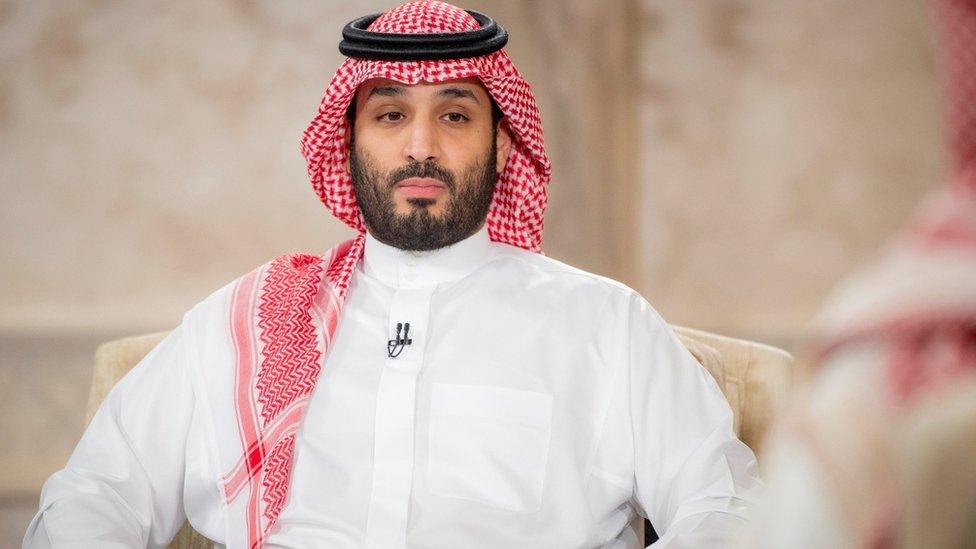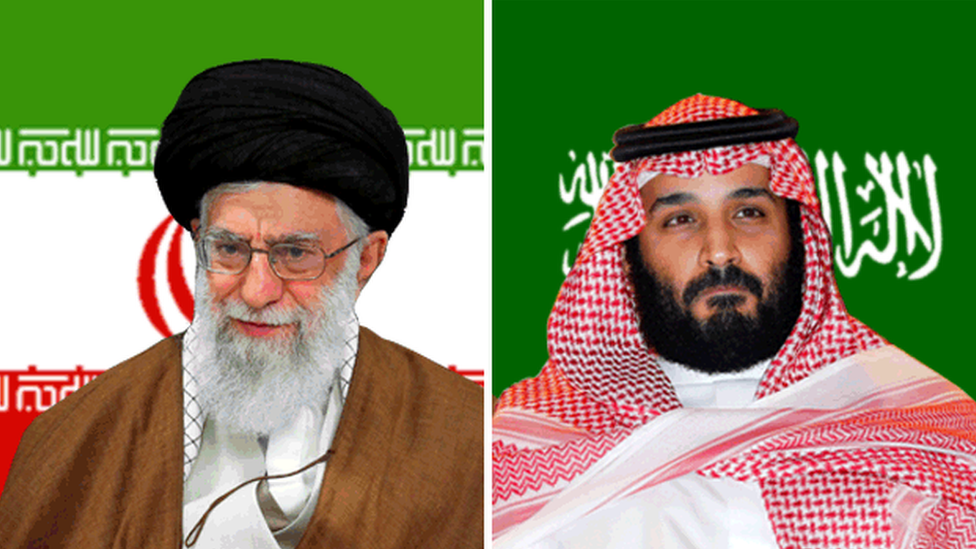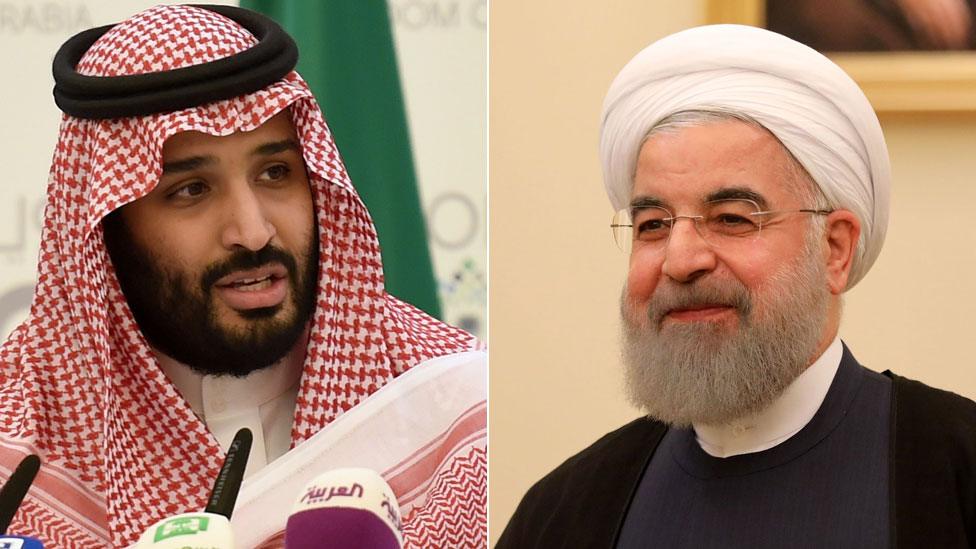Iran and Saudi Arabia to renew ties after seven-year rift
- Published

Saudi Arabia cut ties in 2016 after its embassy in Tehran was stormed
Middle East regional rivals Iran and Saudi Arabia have agreed to restore diplomatic relations, seven years after severing them in a bitter row.
The unexpected announcement came after four days of talks between officials from both sides in China.
Saudi Arabia cut ties in January 2016 after demonstrators stormed its embassy in Tehran following Riyadh's execution of a prominent Shia Muslim cleric.
Tensions between the Sunni and Shia-led neighbours have since often been high.
They regard each other as a threatening power that seeks regional dominance. They also support rival sides across the Middle East, including in Lebanon, Syria, Iraq - and most overtly in Yemen.
Iran has supported Shia Houthi rebels who forced out the Saudi-backed government in 2014, while Saudi Arabia has led a devastating air campaign against the Houthis since the following year.
Saudi Arabia has also accused Iran of helping the Houthis attack it.
In the most serious incident of its kind, drones and missiles struck major Saudi oil facilities in 2019, causing damage and disruption to production. Saudi Arabia and its US ally blamed Iran for the attack - something Iran denied.
Previous attempts at reconciliation have been unsuccessful, but on Friday the two countries said they would reopen embassies within two months. They will also re-establish trade and security relations.
The US cautiously welcomed the announcement. White House National Security Council spokesman John Kirby said the administration supported "any effort to de-escalate tensions in the region". But he added: "It really does remain to be seen if Iran is going to meet their obligations."
UN chief Antonio Guterres thanked China for brokering the deal.
The secretary-general is ready to help efforts "to ensure durable peace and security in the Gulf region", his spokesman said.
Israel, which has called for maximum pressure on Iran over its nuclear programme, has not commented.
Related topics
- Published28 April 2021

- Published16 September 2019

- Published10 November 2017
